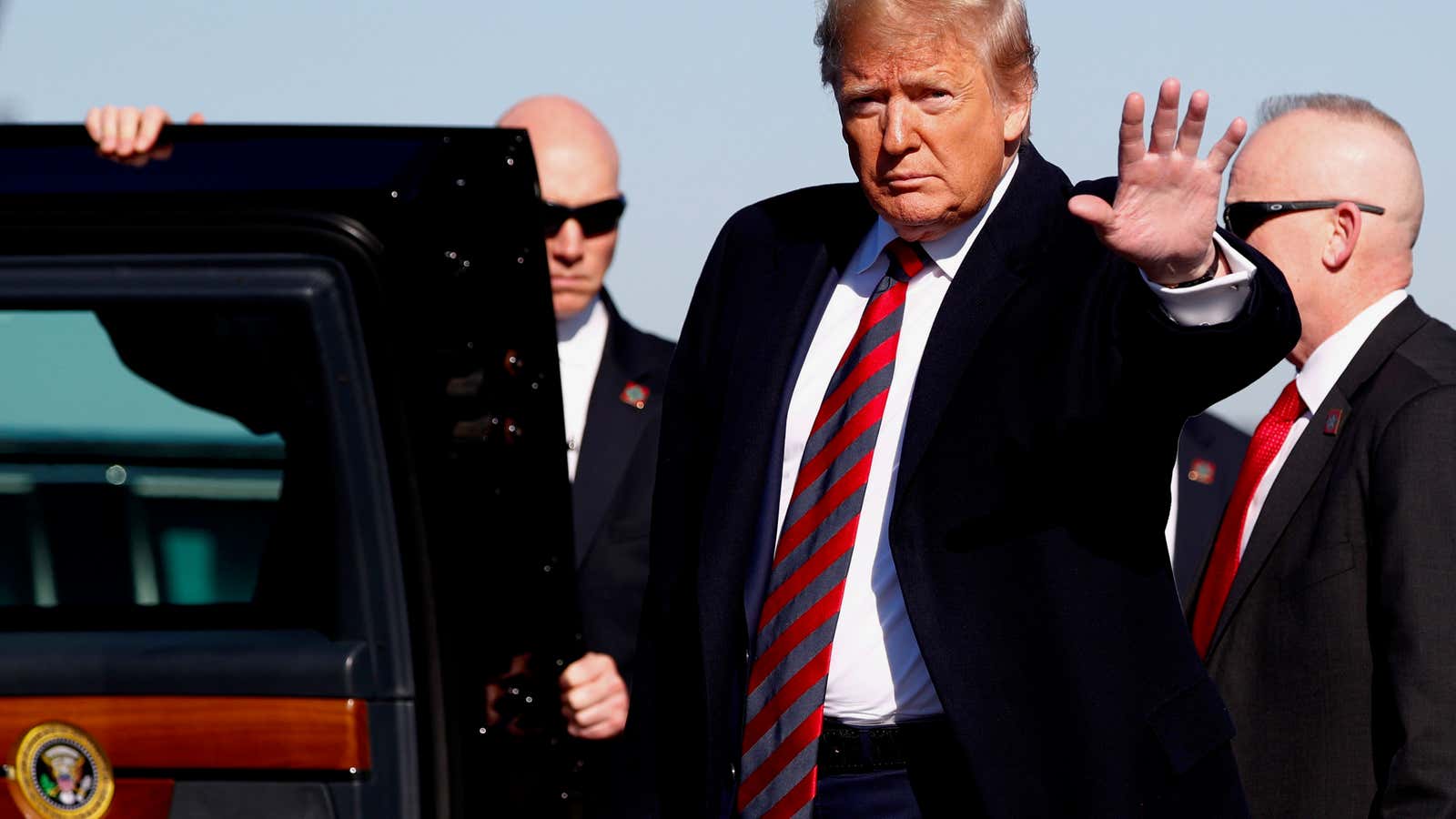In the coming week, the impeachment inquiry into US president Donald Trump’s Ukraine dealings goes public. Hearings that have until now been restricted to House representatives on certain committees will be opened up beginning Nov. 13.
This should come as a consolation to Republicans, who have continually condemned the privacy of the inquiry that House Democrats initiated in September after a whistleblower report expressed concern that Trump premised handing over foreign aid to Ukraine on an investigation into his political rival, Joe Biden, for personal gain. They have said, and continued to say today, that the Democrats were engaged in a sham process that’s not fair because it’s not open.
House Republicans submitted a suggested witness list to the House Intelligence Committee this morning, stating that Americans will benefit from the “open” testimony of those it proposes appear at the upcoming public proceedings. Although the letter containing this list was scathing, Republicans nonetheless are engaging in the process they have called a sham. And they have threatened to characterize denials of their witness requests as proof the imminent open process is illegitimate.
Trump, for his part, is condemning any hearings, private or public, sticking with his position that the inquiry should not be happening at all. The president calls the open inquiry “a hoax” and today stated, “There shouldn’t be anything. There shouldn’t be impeachment hearings.”
Still, for all of the Republican dismissals of the investigation, the inquiry does appear to be putting the president under pressure. Trump also revealed that he will shortly release a record of a phone call he had with Ukrainian president Volodymyr Zelensky in April—before a July call that triggered the whistleblower’s report. “They want to have a transcript of the other call, the second call, and I’m willing to provide that,” Trump told reporters before boarding Air Force One.
The president believes the first call will put the second conversation he had with Zelensky—the one at the center of this investigation in which he asked the Ukrainians to “do us a favor”—into context. It will prove he did nothing impeachable, he contends. The April call is “very important,” Trump said, and challenged his audience to examine it. “You’ll read the second call, and you’ll tell me if there’s anything wrong with it.”
But based on the record so far, more information about Trump’s conversations won’t necessarily show what he hopes or bode well for the president. After all, when Trump released in September what he called “a transcript” of his July conversation (really a reconstructed record), it was enough to convince House speaker Nancy Pelosi that Democrats should finally launch an impeachment inquiry. This, even after she’d resisted calls for the same earlier this year when the Mueller report was released and didn’t exonerate Trump of obstruction of justice in the special counsel’s investigation into Russian interference in the 2016 US elections.
So the president may yet come to regret the emphasis he is now, under pressure, placing on another conversation “transcript.”
